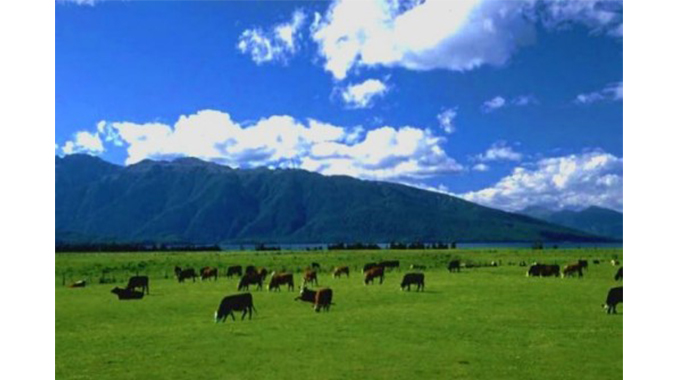Pastures remain critical in Beitbridge

Thupeyo Muleya, Beitbridge Bureau
THE state of livestock and pastures remains dire in Beitbridge district where 9 000 cattle succumbed to drought last year.
Livestock production is one of the major sources of livelihoods for many people in the area and crops cannot do well under the climatic conditions.
Some small-scale farmers have been registering with the Department of Agriculture Extension Services (Agritex) to benefit under the Command Livestock scheme to replenish their herds. District Agritex officer, Mr Masauso Mawocha said yesterday that 7 000 people had registered for the programme.
He said in some cases the farmers were buying hay bales, salt licks and other stock feeds to save their cattle.
The official said the district had around 100 000 cattle, 145 000 goats, 60 000 sheep, 37 000 donkeys, 2 000 pigs, and 25 000 poultry.
Mr Mawocha said farmers were looking forward to an improved agricultural season this year as predicted by meteorologists. “Though the situation temporarily improved after we received some rains, the situation has become challenging again.
“Most livestock farmers are now shifting their attention from cattle to small stock including sheep and goats. These are drought resistant,” he said.
The official encouraged farmers to keep supplementing food for their cattle and ensure that they are fully supplied with drinking water. This, he said, would minimise poverty-related deaths.
Mr Mawocha said although the pastures were bad, 500 small scale livestock farmers from the district were expected to benefit from a three-year artificial insemination programme the that Government is implementing.
The initiative is being sponsored by the United Nations Development Programme (UNDP) as part of the Zimbabwe Resilience Initiative. “Matopo Research Centre is the implementing partner. So far, 1 056 cattle have been inseminated against a target of 1200.
“A total of 204 and 546 inseminations were done in 2018 and 2019 respectively and we handled 310 animals this year in March but stopped before we reached the 454 targeted for 2020 due to the Covid-19 lockdown,” he said.
He said the programme was focusing mainly on the Tuli, Boran, Brahman and a few Jerseys (dairy cattle ) for farmers with access to irrigated fodder.
The community, he added, will benefit from using part of the progeny as the next generation of their bulls.
Mr Mawocha also said livestock farmers should practise good animal husbandry initiatives such as dehorning, castration, proper dosing, effective tick control, and proper livestock feeding regimes. — @tupeyo








Comments